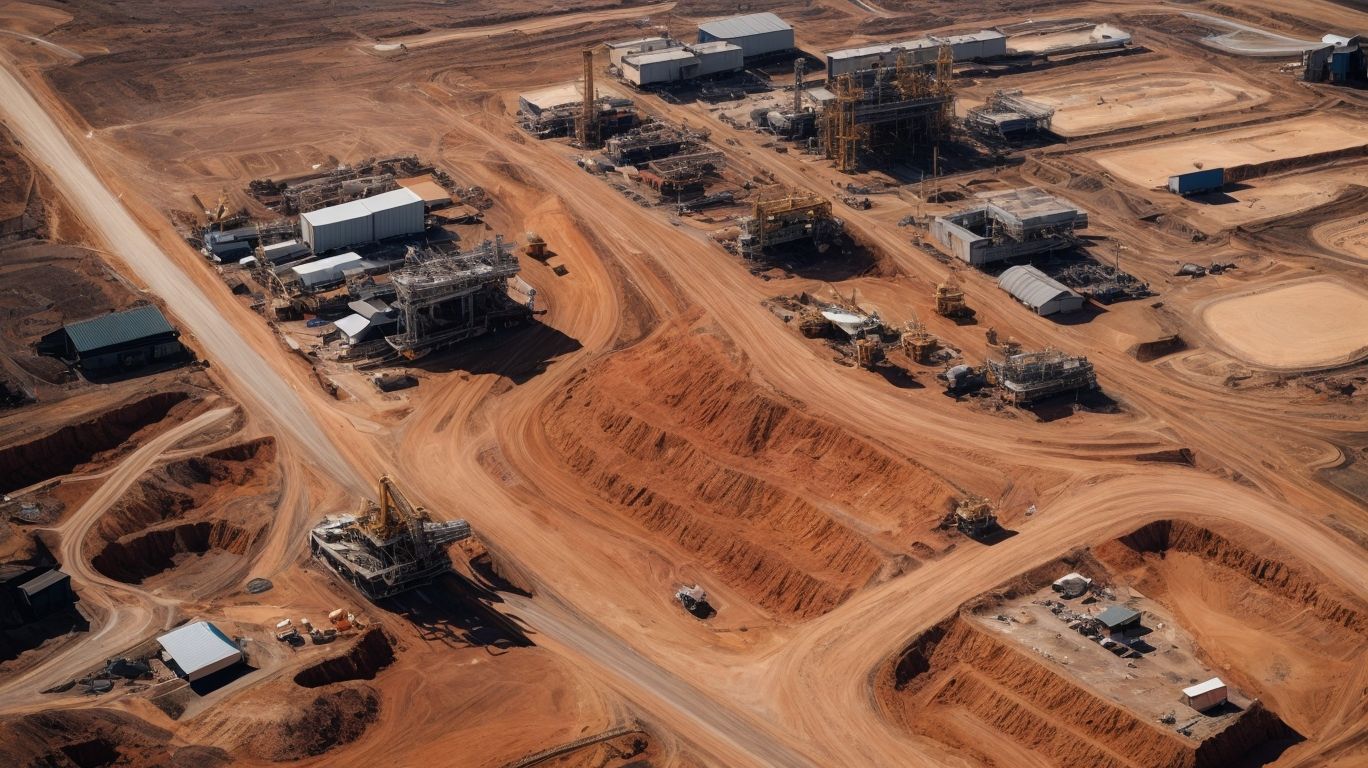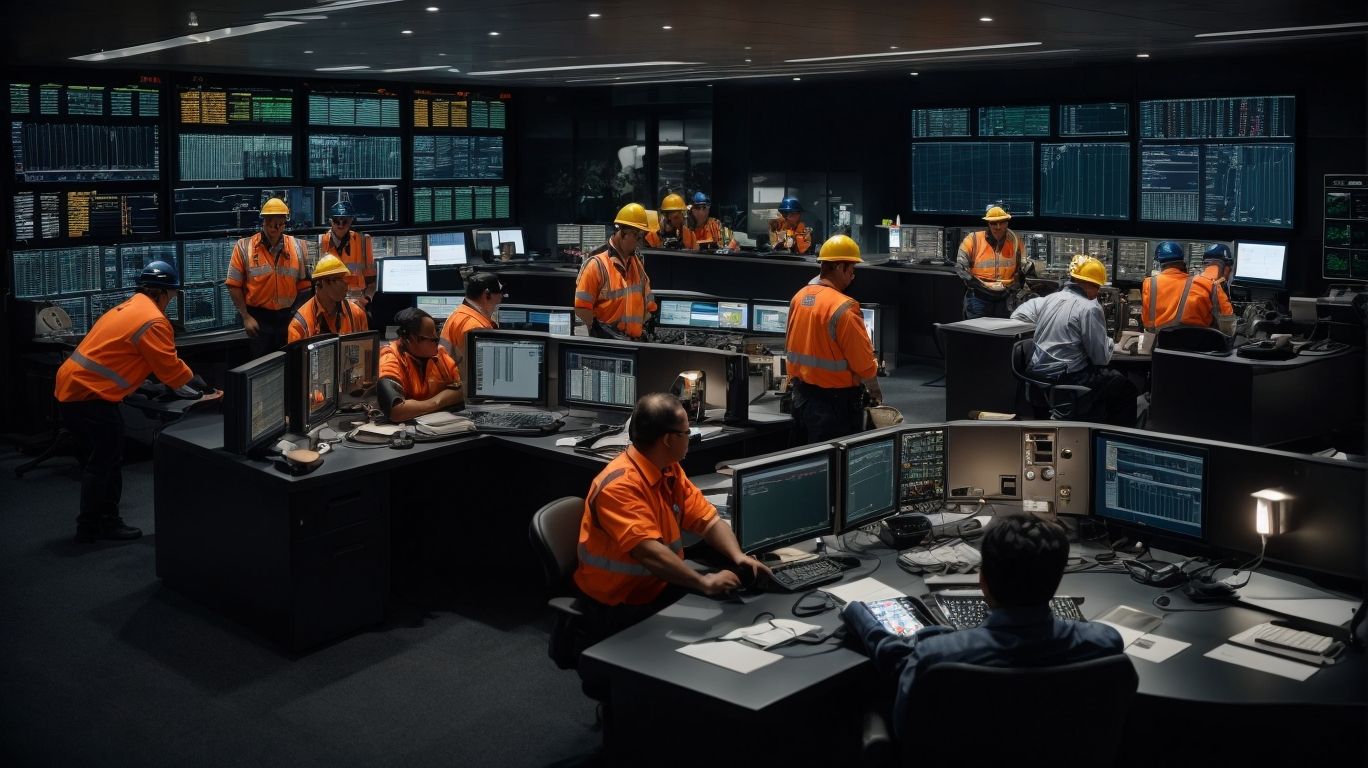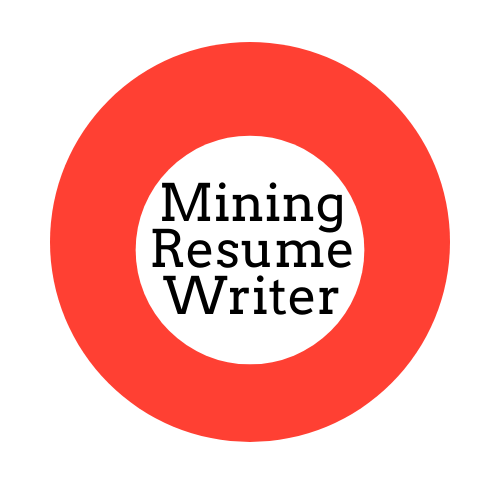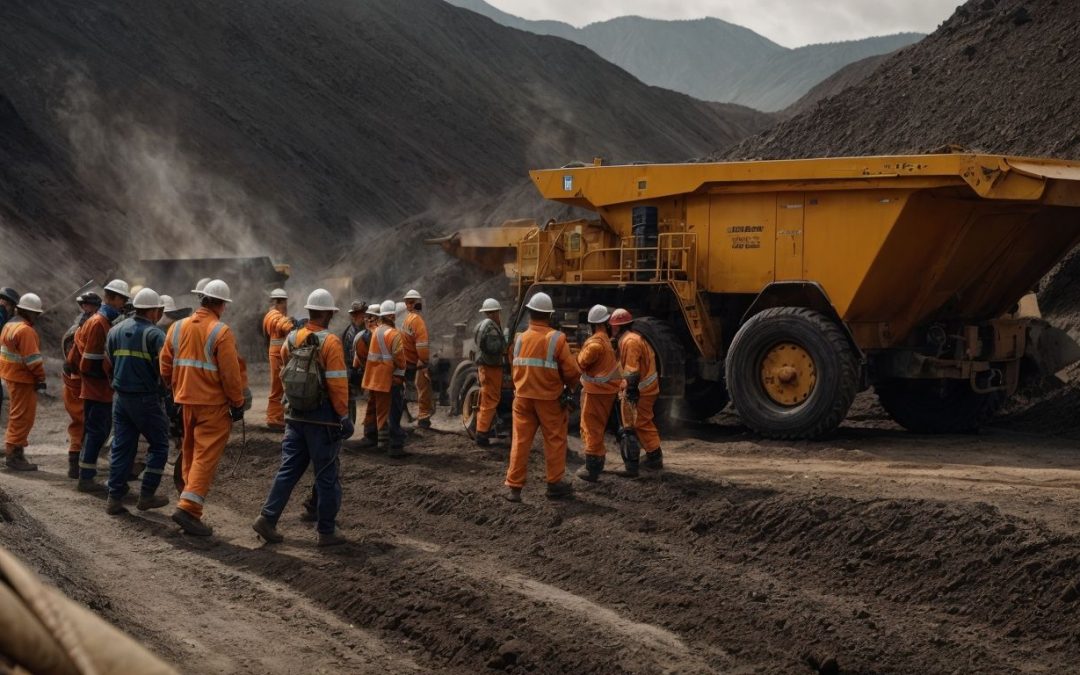The mining industry is a vital sector in the Australian economy, and the states of Western Australia (WA) and Queensland (QLD) are home to some of the world’s largest mines. These mining operations require skilled and experienced individuals to manage various aspects of their operations, from production to safety to finance. If you are interested in pursuing a career in the mining industry in WA or QLD, here is a guide to the types of mining management jobs available and how to find and apply for them.
Types of Mining Management Jobs
- Mine Manager – responsible for overall management of the mine, including operations, production, and finances.
- Mining Engineer – designs and plans mining operations, ensuring efficiency and safety.
- Geologist – studies and analyses geological data to determine the location and value of mineral deposits.
- Health and Safety Manager – responsible for creating and implementing safety protocols and ensuring compliance with regulations.
- Environmental Manager – oversees environmental impacts and compliance with environmental regulations.
- Human Resources Manager – manages recruitment, training, and employee relations.
- Supply Chain Manager – responsible for managing the supply chain and logistics for mining operations.
- Financial Manager – monitors and manages finances and budgets for the mine.
Responsibilities of Mining Management Jobs
- Overseeing Operations and Production – ensuring that mining operations run smoothly and efficiently.
- Managing Health and Safety Protocols – implementing and enforcing safety protocols to protect workers and the environment.
- Planning and Budgeting – creating and managing budgets to ensure profitability.
- Managing Staff and Resources – overseeing employees and resources to ensure efficient and effective operations.
Qualifications and Skills Required
- Relevant Education and Experience – a degree in a relevant field such as engineering, geology, or business, and several years of experience in the mining industry.
- Strong Leadership and Communication Skills – the ability to lead and manage a team effectively and communicate with various stakeholders.
- Knowledge of Mining Regulations and Protocols – a thorough understanding of government regulations and industry protocols related to mining.
- Technical and Analytical Skills – proficiency in using technical equipment and analysing data.
How to Find and Apply for Mining Management Jobs
- Networking and Building Connections – attend industry events and conferences to network and make connections with potential employers.
- Using Job Search Engines and Websites – search for job postings on online platforms such as Seek, Indeed, and LinkedIn.
- Attending Job Fairs and Conferences – attend job fairs and conferences specifically for the mining industry to connect with potential employers.
- Applying Directly to Mining Companies – research and apply directly to mining companies in WA and QLD that have job openings in management roles.
What are the Different Types of Mining Management Jobs?
Mining operations require a diverse range of professionals to ensure smooth and efficient operations. In this section, we will explore the various types of management jobs within the mining industry, specifically in Western Australia and Queensland. From overseeing the entire mine to ensuring the safety of workers, we will take a closer look at the roles and responsibilities of mine managers, mining engineers, geologists, health and safety managers, environmental managers, human resources managers, supply chain managers, and financial managers.
1. Mine Manager
Earn a relevant degree in mining engineering or a related field.
Acquire experience in the mining industry, demonstrating leadership and operational management skills.
Develop strong knowledge of mining regulations, safety protocols, and operational procedures.
Enhance communication and leadership skills to effectively oversee mining operations and lead a team.
Stay updated with industry trends and advancements through continuous learning and professional development.
2. Mining Engineer
A mining engineer is responsible for designing mines, evaluating geological conditions, planning mining operations, and managing production. They also ensure safety measures, environmental protection, and cost-efficiency in mining processes.
A successful mining engineer needs a strong background in engineering, geology, and management, along with a deep understanding of mining regulations and technologies.
3. Geologist
Obtain a relevant degree in geology or earth sciences.
Gain experience through internships or entry-level positions in mining or exploration companies.
Develop strong analytical and problem-solving skills for interpreting geological data.
Acquire knowledge of mining software and technologies for geospatial mapping and data analysis.
Stay updated with industry advancements and geological surveys to understand the geological landscape.
4. Health and Safety Manager
The role of a Health and Safety Manager in WA/QLD mines encompasses:
- Ensuring compliance with safety regulations.
- Implementing safety protocols.
- Conducting risk assessments.
- Overseeing emergency preparedness.
5. Environmental Manager
Key steps for aspiring Environmental Managers in WA/QLD mines:
- Earn a relevant degree in environmental science or engineering.
- Seek hands-on experience through internships or entry-level roles.
- Obtain certifications in environmental management and regulations.
- Network with industry professionals and join environmental associations.
True story: John, an environmental science graduate, secured an entry-level role at a mining company. His proactive approach in pursuing certifications and networking led to his promotion as an Environmental Manager within three years.
6. Human Resources Manager
Acquire a degree in human resources or a related field.
Gain relevant experience in mining or industrial HR roles.
Showcase a strong understanding of labour laws and regulations.
Demonstrate expertise in talent acquisition and employee development.
Develop strong interpersonal and conflict resolution skills.
Did you know that the demand for human resources managers in the mining industry is projected to grow by 9% over the next decade?
7. Supply Chain Manager
Understanding the supply chain processes within the mining industry.
Managing procurement, transportation, and inventory to ensure seamless operations.
Implementing cost-effective strategies for sourcing, storing, and delivering materials.
Collaborating with various stakeholders to optimize supply chain efficiency.
8. Financial Manager
Understanding financial operations: Gain insights into the specific financial aspects of mining operations and projects.
Monitoring budget and expenses: Oversee and manage the financial budget, ensuring efficient allocation of resources.
Forecasting and financial planning: Utilize financial data to forecast future needs and formulate strategic financial plans.
Compliance and reporting: Ensure adherence to financial regulations and prepare accurate financial reports.
For aspiring financial managers in WA/QLD mines, networking within the mining industry and pursuing relevant certifications can enhance career prospects.
What are the Responsibilities of Mining Management Jobs?

Mining management jobs in Western Australia and Queensland require a diverse range of skills and responsibilities. These positions are crucial for ensuring the smooth and efficient operation of mining sites. In this section, we will discuss the responsibilities that come with these roles, including overseeing daily operations and production, managing health and safety protocols, planning and budgeting, as well as overseeing staff and resources. Let’s dive into the details of what it takes to successfully manage a mining site.
1. Overseeing Operations and Production
Define Key Performance Indicators (KPIs) for production targets.
Organise and supervise mining activities to achieve production goals.
Implement safety protocols and ensure compliance during operations.
Monitor equipment performance and maintenance to optimise production efficiency.
Once, a mining manager, John, streamlined operations at a WA mine, increasing production by 25% through KPI-driven strategies.
His focus on safety also reduced workplace incidents by 30%.
2. Managing Health and Safety Protocols
Implementing safety training programs for all personnel.
Conducting regular safety inspections and risk assessments.
Developing emergency response plans for various scenarios.
Ensuring compliance with health and safety regulations.
In 1946, the U.S. government established the Federal Coal Mine Safety Act to prevent fatalities and injuries in coal mines, marking a significant milestone in managing health and safety protocols in the mining industry.
3. Planning and Budgeting
Assess Financial Data: Review historical budgets, financial reports, and market trends.
Forecasting: Develop accurate predictions for future financial needs based on industry trends and company projections.
Cost Control: Implement strategies to minimise expenses while maximising operational efficiency.
Budget Allocation: Determine resource allocation to different departments and projects based on priority and need.
Financial Planning: Create comprehensive financial plans for short-term and long-term organisational goals.
4. Managing Staff and Resources
Delegate tasks based on individual strengths and expertise.
Implement efficient resource allocation strategies.
Provide regular training and skill development opportunities.
Ensure a positive and inclusive work environment.
In my previous role as a mining manager, I successfully implemented a resource management system that optimised productivity and minimised waste. By empowering my team through skill development, we achieved a 20% improvement in operational efficiency within six months.
What are the Qualifications and Skills Required for Mining Management Jobs?
Mining management jobs in Western Australia and Queensland require a unique set of qualifications and skills. In this section, we will discuss the necessary requirements for individuals seeking such positions. From relevant education and experience to strong leadership and communication skills, we will explore the key factors that make a successful mining manager. Additionally, we will touch upon the knowledge of mining regulations and protocols, as well as the technical and analytical skills needed for this demanding role.
1. Relevant Education and Experience
Research the specific educational requirements for the desired mining management position, such as a degree in engineering, geology, or environmental science.
Gain relevant experience through internships, apprenticeships, or entry-level positions within the mining industry.
Stay updated on the latest industry trends, technologies, and regulations through continuous education and professional development.
Seek mentorship from experienced professionals in the field to gain insights and guidance for career advancement.
2. Strong Leadership and Communication Skills
Develop strong leadership skills by taking on leadership roles in projects or volunteer activities.
Enhance communication skills through public speaking, writing, and active listening workshops.
Seek mentorship from experienced leaders to gain insights and guidance.
Participate in team-building exercises to improve collaboration and interpersonal skills.
Remember, building strong leadership and communication skills is an ongoing process that requires dedication and continuous improvement.
Embrace challenges and feedback as opportunities for growth.
3. Knowledge of Mining Regulations and Protocols
Understanding mining laws and regulations in Western Australia and Queensland, including environmental protection laws and safety standards.
Staying updated with industry protocols related to mining operations, land reclamation, and community relations.
Complying with government requirements for permits, licenses, and reporting in mining activities.
4. Technical and Analytical Skills
Enhance technical and analytical skills through formal education or specialized courses. Apply these skills in practical scenarios through internships or on-the-job training. Stay updated with the latest technological advancements and analytical tools used in the mining industry. Develop problem-solving abilities and critical thinking to analyze complex mining data.
When aiming to excel in mining management, honing technical and analytical skills is crucial. Continuous learning and hands-on experience create a strong foundation for success in this field.
How to Find and Apply for Mining Management Jobs in WA/QLD Mines?

Are you interested in pursuing a career in mining management in Western Australia or Queensland? In this section, we will discuss the various methods for finding and applying for mining management jobs in these regions. From networking and building connections, to using job search engines and attending job fairs, we will explore the best strategies for landing your dream job in the mines. Additionally, we will cover the importance of applying directly to mining companies and how to make your application stand out.
1. Networking and Building Connections
Attend industry events and seminars to meet professionals in the mining sector.
Join professional organisations and associations related to mining management jobs.
Participate in online forums and social media groups for networking opportunities.
Engage in informational interviews with experienced mining professionals to build connections.
Seek mentorship from established individuals in the mining management field.
2. Using Job Search Engines and Websites
Start by creating profiles on popular job search engines and websites such as LinkedIn, Indeed, and Glassdoor. Utilise advanced search filters to narrow down results based on location, job title, and experience level. Set up job alerts to receive notifications for new mining management job postings. Regularly update your online profiles and resumes to attract potential employers. Engage with industry-related groups and forums to expand your network and stay updated on job opportunities. Remember to tailor your applications to highlight relevant experience and skills, and follow up on submitted applications to demonstrate your strong interest in the positions.
3. Attending Job Fairs and Conferences
Research: Identify relevant job fairs and conferences in the mining industry.
Prepare: Update your CV and covering letter to align with mining management job requirements.
Network: Engage with industry professionals and recruiters to gain insights and opportunities.
Attend: Participate actively in job fairs and conferences, attending workshops and seminars to enhance knowledge.
Follow up: Connect with contacts made during the events and express genuine interest in available positions.
4. Applying Directly to Mining Companies
Research: Explore mining companies’ websites, annual reports, and industry publications to identify openings.
Network: Connect with professionals in the industry through LinkedIn, industry events, and conferences.
Prepare: Tailor your CV and covering letter to highlight relevant experience and skills that match the job requirements.
Apply: Submit your application directly through the company’s official website or human resources contact.

